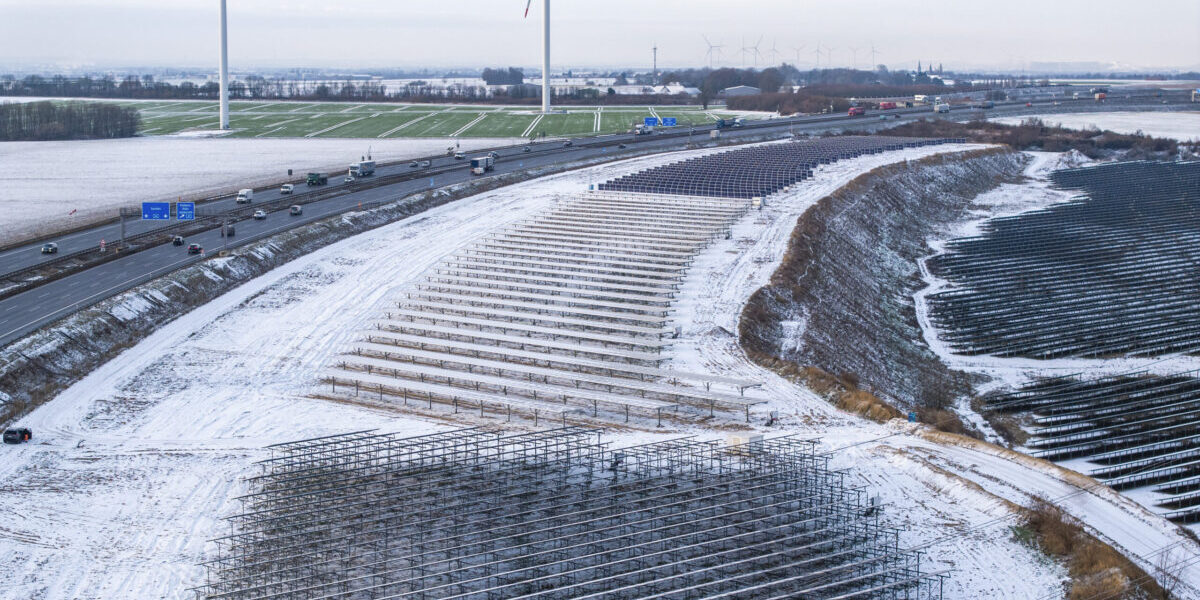From pv magazine Germany
German energy company RWE announced it completed a 3.2 MW agrivoltaic project on a 7-hectare recultivation area on the edge of the Garzweiler opencast mine near Bedburg, a town in the Rhein-Erft-Kreis district of North Rhine-Westphalia, Germany.
The utility said it will test three different agrivoltaic system designs for different crops on both arable and horticultural land at the facility over five years. The aim is to develop suitable management methods and value-adding operating concepts for agrivoltaic systems.
RWE also intends to observe the interaction between plant growth and photovoltaic generation under different seasonal weather conditions over the years.
According to the company, the first of the three designs will see the solar modules firmly attached to the mounting system in a vertical orientation. In the second variant, they will be mounted on movable trackers following the sun from east to west. Lucerne, field beans and forage grass will be planted on these two areas in the first year of the trial. In the following years, crops such as grain, sugar beets, potatoes and other vegetables will be grown. The rows of modules are designed so that harvesters can drive through them.
In the third concept, the solar modules will be mounted on a pergola-like structure, with raspberries being grown underneath.
The Fraunhofer Institute for Solar Energy Systems ISE and the Institute of Plant Sciences at the Jülich Research Center are teaming up with RWE in the testing and analysis of the three systems.
This content is protected by copyright and may not be reused. If you want to cooperate with us and would like to reuse some of our content, please contact: editors@pv-magazine.com.




If this project is built on a former mine site, is the soil at all appropriate for farming? Will this be a meaningful test?